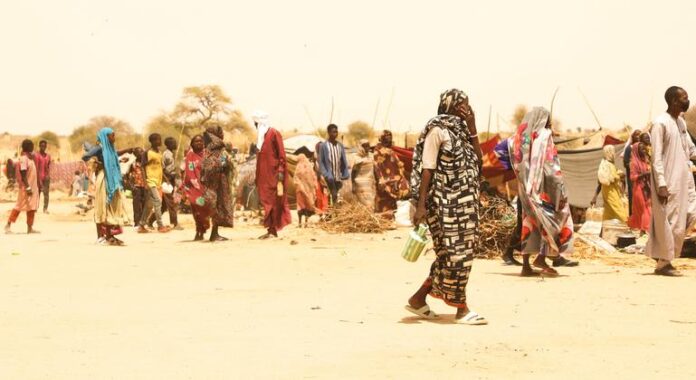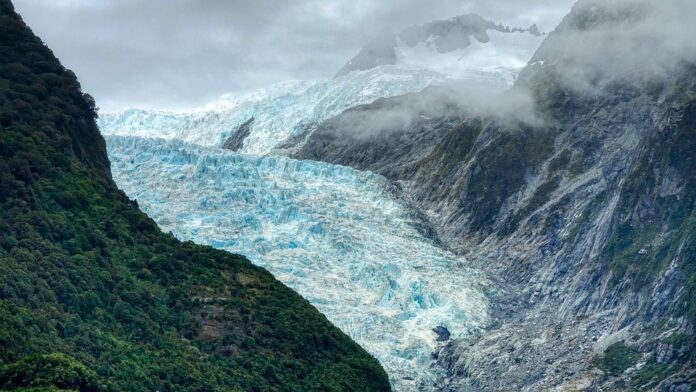The warning from the UN aid coordination office, OCHA, follows ongoing and repeated attacks on El Fasher, which is under siege by the paramilitary Rapid Support Forces.
Ten days ago, the Darfuri city’s Daraja Oula neighbourhood was targeted in a drone strike, killing at least 57 civilians who’d been displaced by the war.
Almost 30 months of war in Sudan have left nearly two in three people in dire need of humanitarian assistance, including 16 million children.
Famine has been confirmed in various parts of the country, and millions remain at risk of starvation.
Meanwhile, disease outbreaks are compounding the crisis, alongside worsening climate shocks, OCHA says, with more than 3,400 deaths from the ongoing cholera outbreak since July 2024 and over 120,000 suspected cases today.
Displacement continues
The International Organization for Migration (IOM) estimates that more than 3,000 people were newly displaced in North Darfur just last week, including 1,500 from El Fasher, the besieged state capital, and another 1,500 from Abu Gamra, following renewed fighting.
Tensions are also rising sharply in the Kordofan region. Nearly 1,000 people were displaced from Lagawa town in West Kordofan State on Saturday, due to heightened insecurity, warned UN Spokesperson Stéphane Dujarric.
Meanwhile, in South Kordofan, the town of Dilling and the state capital Kadugli remain under siege, with supply routes cut off and shortages of basic goods worsening by the day.
“Civilians across Sudan continue to bear the brunt of this relentless violence,” said Mr. Dujarric.
“Despite the numerous challenges, our humanitarian colleagues continue to provide vital assistance to displaced people in areas that we and our partners are able to safely access.”
Kyrgyzstan: Death penalty reintroduction would violate international law, Türk warns
The UN High Commissioner for Human Rights on Monday called on the authorities in Kyrgyzstan not to reintroduce the death penalty following the rape and murder of a girl there last month.
Volker Türk warned that this would be a serious breach of international law.
Kyrgyzstan stopped using capital punishment in 1998 and then permanently prohibited its use in law in 2010, when it ratified the Second Optional Protocol to the International Covenant on Civil and Political Rights (ICCPR).
Treaty withdrawal threat
According to Mr. Türk’s office, the Kyrgyz authorities want to amend the Constitution to allow the use of the death penalty for cases including the rape of a child.
They have also proposed that the country withdraws from the optional protocol.
These rights “cannot be taken away, no matter the justification that is offered”, the High Commissioner said.
He added that no justice system is perfect, and if the death penalty were reintroduced, it would in time lead to the death of innocent people at the hands of the State.
Health crisis in DR Congo
OCHA on Monday reported that health systems across North and South Kivu in the restive Democratic Republic of Congo (DRC) have, in effect, collapsed.
Around 85 per cent of health facilities in the volatile eastern region where armed groups hold sway, are experiencing medicine shortages, while nearly 40 per cent have seen an exodus of medical staff – further weakening the delivery of essential health services.
In North Kivu alone, UN partners reported that a third of all health facilities in the province’s conflict zones have been destroyed, looted, or abandoned, leaving millions with extremely limited access to healthcare.
To make matters worse, the collapse of health systems is compounded by outbreaks of deadly epidemics.
“Since the beginning of the year, health partners have recorded over 8,600 cases of cholera, 8,000 cases of monkeypox, and more than 10,500 cases of measles”, said UN Spokesperson Stéphane Dujarric.
Immediate action needed
Without urgent action, the UN estimates that 6,000 preventable deaths could occur between now and the end of the year.
As of now, the Humanitarian Needs and Response Plan for the DRC is just 16 per cent funded, with $410 million received. The UN critically needs an additional $6 million to procure essential supplies and maintain these life-saving services.
In more positive health news, health authorities in DRC discharged the final patient from the latest Ebola virus outbreak, marking what the World Health Organization described as “an important milestone.”
A total of 19 patients have recovered from the disease, said the UN health agency. No new cases have been reported since 25 September. In total, 64 cases (53 confirmed and 11 probable) have been reported since the outbreak was declared on 4 September in Kasai Province.
Cholera surge in Haiti
To another crisis hotspot now and the impact of ongoing gang warfare in Haiti: OCHA is warning of a resurgence of cholera in the Ouest department over the past month.
Health authorities have reported new cases in the commune of Pétion-Ville, following 11 weeks with no cases showing up.
In just a single week between 5 and 11 October, there were 139 suspected cases recorded, including more than 20 laboratory-confirmed. Five deaths were also reported.
Pétion-Ville, as well as parts of the capital Port-au-Prince, including the commune of Cité-Soleil, remain on red alert, amid concerns over cholera spreading at sites hosting internally displaced.
Haiti’s Ministry of Health, with support from the UN-backed Pan American Health Organization (WHO) and humanitarian partners, has stepped up disinfection campaigns, community awareness activities, and the distribution of chlorine, safe water and hygiene kits in the areas that are most impacted.







